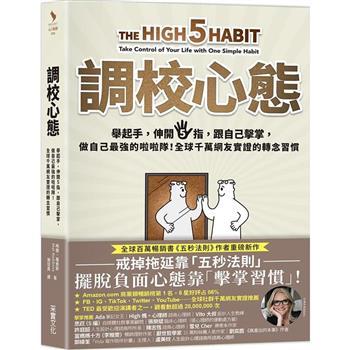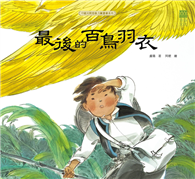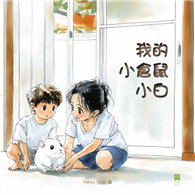The book "Plant Adaptation to Abiotic Stress: From Signaling Pathways and Microbiomes to Molecular Mechanisms" comprehensively examines abiotic stressors--cold, heat, light, salinity, and water scarcity--across its 18 chapters. Focusing particularly on Arabidopsis thaliana, it investigates abiotic stresses, adaptation strategies, and molecular pathways. Furthermore, it addresses broader issues, including climate challenges, food security, water scarcity, and agricultural concerns such as soil acidity and aluminum stress. It proposes adaptive measures for cultivating stress-resistant crops and sheds light on genetic modification methods such as CRISPR-Cas9, integrating nanotechnology in plant breeding. Emphasizing transcription factors, post-translational protein modifications, and diverse noncoding RNAs (long noncoding RNAs, circular RNAs, microRNAs, and small interfering RNAs), the book highlights their role in regulating gene expression during stress responses. It specifically underscores secondary messengers, plant hormones, and MAPK cascades within intracellular signaling pathways. Additionally, it discusses the roles of endophytic bacteria and microbial interactions in bolstering stress resilience. The book explores state-of-the-art research methodologies in plant breeding, omics approaches, and nanotechnology integration for developing stress-resistant crop varieties, advocating for agricultural sustainability. Tailored for plant physiology scientists, academics, and postgraduate students, it amalgamates diverse research findings, serving as a pivotal resource to comprehend intricate plant responses to environmental challenges.
| FindBook |
|
有 1 項符合
Chaffai的圖書 |
 |
$ 10199 | Plant Adaptation to Abiotic Stress: From Signaling Pathways and Microbiomes to Molecular Mechanisms
作者:Chaffai 出版社:Springer 出版日期:2024-05-24 語言:英文 規格:精裝 / 575頁 / 普通級/ 初版  看圖書介紹 看圖書介紹
|
|
|
內容簡介
作者簡介
Dr. Radhouane Chaffai, an Assistant Professor at the Higher Institute of Biotechnology of Sidi Thabet (ISBST), the University of Manouba (UMA), Tunisia, boasts over three decades of teaching experience across educational levels, from colleges and high schools to universities. His research, spanning approximately 30 years, focuses on plant physiology, particularly examining plant responses to heavy metals such as aluminum, cadmium, copper and zinc. Dr. Chaffai has mentored and co-supervised numerous students in their final-year projects, master’s, and PhD theses. His academic journey began with a Diplôme d’Études Approfondies (DEA) at the University of Tunis El Manar in 1997, culminating in a PhD in Biology from the University of Carthage, Tunisia, in 2003. In 2008, he earned the prestigious JSPS Postdoctoral Fellowship for Foreign Researchers, engaging in collaborative research with Professor Hiroyuki Koyama at Gifu University’s Plant Cell Technology Laboratory from 2009 to 2011. Dr. Chaffai has an extensive publication record in international peer-reviewed journals and actively presents at national and international conferences. His consistent involvement in these academic forums underscores his notable scholarly contributions and efforts in fostering successful research collaborations among his peers.
Dr. Markkandan Ganesan is an Assistant Professor in the Department of Life Sciences at Presidency University, Kolkata, India. Concurrently, he serves as the coordinator at the School of Biotechnology within Presidency University. Possessing extensive expertise in various plant biology and plant molecular biological techniques, including photobiotechnology and biofuels, Dr. Ganesan obtained his PhD from Bharathidasan University in Tiruchirappalli, India. Subsequently, he conducted postdoctoral research at Jeju National University in South Korea. He was selected through an open recruitment for the JSPS Postdoctoral Fellowship Program for Foreign Researchers at Gifu University in Japan. At Presidency University, he leads a research group dedicated to advancing the development of transgenic turfgrass. Additionally, his investigations have focused on the effects of abiotic stress, particularly heavy metal and acid soil stress, on plant root development. Dr. Ganesan has an extensive publication record, with over 30 research and review papers published in peer-reviewed international journals and books. Moreover, he has actively presented his research findings in numerous international and national-level conferences and meetings. Dr. Ganesan’s remarkable contributions to the field of biotechnology have earned him numerous prestigious awards and honors, underscoring the significance of his scholarly endeavors.
Dr. Ameur Cherif holds the position of Microbiology Professor at the Higher Institute of Biotechnology of Sidi Thabet (ISBST) and heads the LR Biotechnology and Bio-Geo Resources Valorization (LR11ES31). Presently, he serves as the Vice-President of Scientific Research at Manouba University (UMA), Tunisia. Dr. Cherif’s academic journey commenced with a bachelor’s degree in natural sciences in 1995, followed by a master’s degree in genetics and molecular biology in 1997. Subsequently, he earned his doctoral degree in microbiology in 2001. He directed the Higher Institute of Biotechnology of Sidi Thabet (ISBST) from 2010 to 2014. Specializing in molecular microbial ecology and biotechnology, his expertise focuses on microbial-mediated degradation and detoxification of pollutants in contaminated environments. Dr. Cherif’s research delves into the phylogeny and ecology of extremophilic microbes, symbionts, commensals, and pathogen microbiota across various hosts. He concentrates on plant growth-promoting rhizobia and the biotechnological applications of active biomolecules. His prolific research has garnered recognition through publications in esteemed international peer-reviewed journals. Additionally, he actively engaged in the European Cost Action FA 0701, partnered in various EU FP7, Tempus, Erasmus, H2020 projects, and holds significant roles on various review and editorial committees. Prof. Cherif boasts an impressive publication record of over 80 peer-reviewed articles and book chapters.
|











